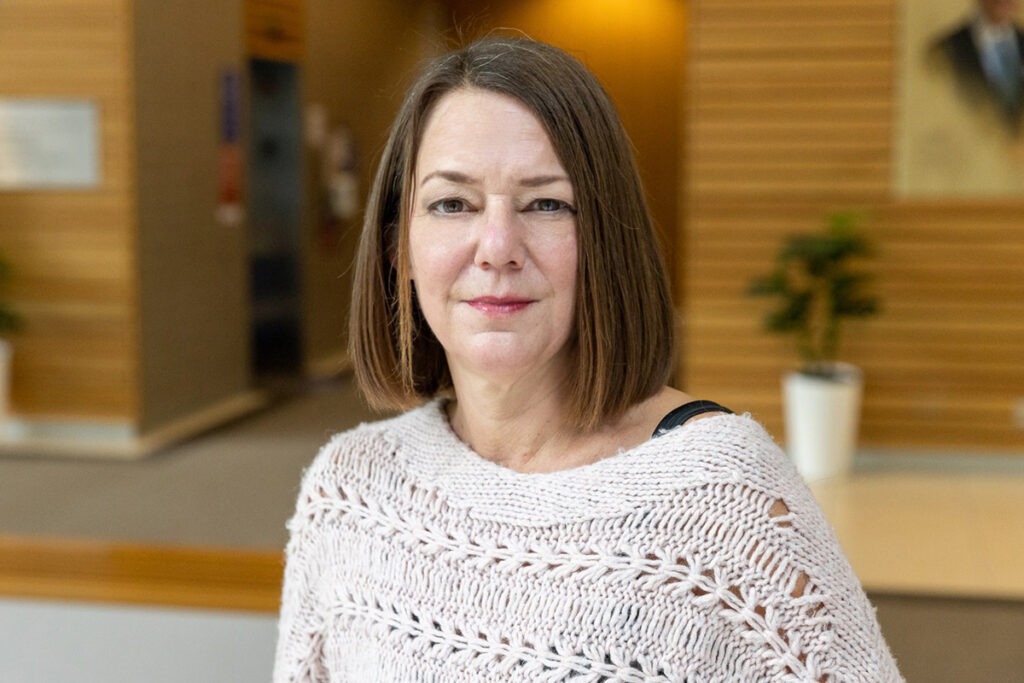How patient and family partners at Unity Health are making a visit to the ED a little easier
A new quality improvement course for patient and family partners was recently launched to equip them with additional knowledge to improve the care experience.
With Emergency Departments (EDs) across Canada facing staff shortages and high volumes, St. Michael’s Hospital is consulting with patients to help ease the experience for those seeking urgent care.
“Anyone who goes into the ED – their blood pressure’s elevated,” says Jennifer Schultz, who has been a Patient and Family Partner for five years. “You’re scared. You’re in a lot of pain. No one is on their best day. How do you make the experience – which is already stressful – easier?”
At Unity Health, Patient and Family Partners (PFPs) are involved in quality improvement initiatives across our three sites. The PFP program pairs former patients, family members or caregivers with staff and leadership at the hospital to collaborate and improve the quality and safety of care and the care experience.
In May 2022, St. Michael’s Hospital opened a temporary ambulatory ED where people who are not likely to be admitted to the hospital can receive treatment. Schultz was invited to do a walkthrough of the space with the ED leadership team to suggest improvements.

“My primary questions were, if I’m coming in, where am I going?” says Schultz. “How do you make the room more inviting? How do you manage people’s expectations and help them understand what the process is going to look like?”
Some of the changes that were put in place because of Schultz’s recommendations include new signage for navigating the space, updated paint and lighting to make the space more calming and a phone in the hallway near the waiting room so patients can contact a nurse if they are feeling worse or if a loved one has arrived outside and needs to be let in to wait with them. These changes create a better care experience for patients while St. Michael’s ED undergoes major renovations.
This is just one example of how PFPs are partnering in quality improvement initiatives at Unity Health. Sometimes PFPs are involved in quality improvement initiatives on a project basis – such as the ED project that Schultz worked on. Other times a PFP will have a standing role on a department or program’s quality committee, where they work closely with leaders, staff and physicians on quality improvement goals in their area.
To equip PFPs with knowledge about quality improvement methodologies, tools and acronyms, Unity Health’s Operational Excellence and Patient Experience teams recently collaborated with Janet Rodriguez – a PFP of seven years – to co-design and deliver a new quality improvement course.
“A big part of quality improvement is making changes to the system to better care for patients,” says Madeline Timlin, an Improvement Project Manager at Unity Health who co-developed the course. “Having PFPs at the table is key. They’re a vital part of quality improvement because they’re impacted by the work that we do every day.”
The first cohort of PFPs to complete the course are members of various quality committees across Unity Health.

“Some PFPs on quality committees had shared feedback that they didn’t always understand what was going on,” says Rodriguez. “What is quality improvement? What am I supposed to do? For some, it was intimidating. For others, they weren’t sure if it was the best use of their time.”
Rodriguez has been a patient at St. Michael’s for many years and has a background in adult education and previous experience with co-development and delivery of quality improvement courses for health care learners with a focus on educating across different health disciplines, which made her the ideal PFP to partner with on the development of the course.
“As a patient, I bring a unique experience of how I receive care. As a patient partner, I bring a perspective that’s a little bit of both sides: giving and receiving care. I’m not an outsider; I am part of Unity Health,” says Rodriguez. “One of Unity Health’s strategic priorities is ‘achieving quality together’. How are we going to make sure that PFPs can participate equally with a group of highly specialized staff and physicians on a quality committee?”
Feedback on the new course has been overwhelmingly positive, with many PFPs commenting that the knowledge they have gained has improved their confidence in the contributions they make to quality improvement initiatives.
In addition to the course for PFPs, the team is also working closely with Rodriguez and Schultz on a course for leaders, staff and physicians at Unity Health on best practices for engaging PFPs in quality improvement that will be launched in 2023. The course will offer evidence-based and practical advice to meaningfully engage PFPs on committees and projects and ensure their knowledge and expertise is part of the project from the outset.
In the meantime, Schultz offers this advice for staff and physicians who are working with PFPs: “Listen to us. Have a fruitful discussion. Not every recommendation a PFP makes is a practical solution, but don’t dismiss it. Discuss it.”
